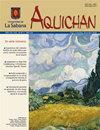Transition to the Role of Family Caregiver of Older Adults After a Stroke: A Specific Theory
Q3 Nursing
引用次数: 0
Abstract
Introduction: Nursing professionals develop situation-specific theories to describe, explain, and provide comprehensive care during a family member’s transition to the caregiver role. Objective: To develop a situation-specific theory about the transition to the role of family caregiver of older adults after a stroke. Methodology: The integrating approach by Meleis and Im was applied, which consists of five stages: 1) Description of the context and target population, 2) Verification of assumptions regarding the philosophical stance, 3) Exploration of multiple sources, 4) Theorization of concepts, and 5) Proposal of empirical indicators for validation and verification. Results: The prescriptive theory was developed in the light of Afaf Meleis’ Theory of Transitions and was supported by an exhaustive literature review, with four underlying concepts: Situational transition to the family caregiver role, Care-related knowledge and skills, Self-confidence and coping in adopting the caregiver role, and Nursing therapeutic education. The following assumption emerges from these concepts: a healthy transition to the family caregiver role is directly dependent on the care-related knowledge and skills provided by Nursing therapeutic education to develop self-confidence and coping in adopting the caregiver role. Conclusions: The proposal provides a conceptual framework that identifies the transition challenges and needs faced by family caregivers to adopt the role of caregivers of older adults after a stroke.老年人中风后家庭照顾者角色的转变:一个特定的理论
简介:护理专业人员发展情境理论来描述,解释,并提供全面的护理在家庭成员过渡到照顾者的角色。目的:建立一个关于老年人中风后向家庭照顾者角色转变的情境特定理论。方法:采用Meleis和Im的整合方法,包括五个阶段:1)描述背景和目标人群,2)验证关于哲学立场的假设,3)探索多来源,4)概念理论化,5)提出验证和验证的经验指标。结果:规范理论是在Afaf Meleis的过渡理论的基础上发展起来的,并得到了详尽的文献综述的支持,它包含了四个基本概念:向家庭照顾者角色的情境过渡、护理相关知识和技能、采取照顾者角色的自信和应对、护理治疗教育。从这些概念中产生了以下假设:健康地过渡到家庭照顾者角色直接依赖于护理治疗教育提供的护理相关知识和技能,以培养采取照顾者角色的自信和应对能力。结论:该建议提供了一个概念性框架,确定了家庭照顾者在中风后接受老年人照顾者角色时所面临的过渡挑战和需求。
本文章由计算机程序翻译,如有差异,请以英文原文为准。
求助全文
约1分钟内获得全文
求助全文
来源期刊

Aquichan
NURSING-
CiteScore
1.10
自引率
0.00%
发文量
32
审稿时长
>12 weeks
期刊介绍:
Aquichan, a journal of medical and health sciences from the field of health sciences and, more specifically, nursing, publishes articles resulting from investigations from a point of view of epistemology, evidence-based practice, chronic care, promotion and prevention. The articles are for the academic and scientific community, both in Colombia and abroad.
The journal accepts original, previously unpublished papers in Spanish, English, and Portuguese, which are the product of a research or a review and which are not being evaluated by other scientific journals, either in print or electronic form.
 求助内容:
求助内容: 应助结果提醒方式:
应助结果提醒方式:


